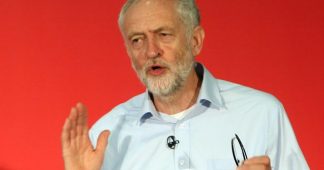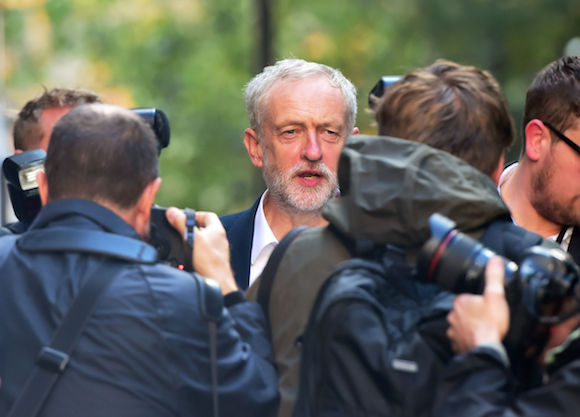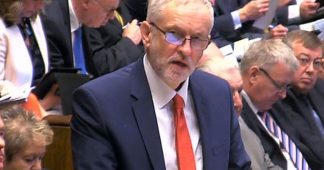By Steve Topple
In a secret ballot this afternoon, Labour’s National Executive Committee (NEC) voted to allow the party’s leader, Jeremy Corbyn, to go onto the leadership election ballot automatically, without the need for nominations. A move which may see his opponents go to court to fight for the leadership.
The decision, made after more than five hours of deliberations, has prompted a furious backlash from members of the party who are against Corbyn – accusing the NEC of intentionally manipulating the party rule book to further their own interests. The vote came down 8-14 in favour of Corbyn.
The NEC initially voted by 17-15 to make the ballot secret, and then also decided to exclude Corbyn (who is on the committee as Labour leader) from the meeting as well – although the Labour leader was given a vote.
According to Channel 4 News’ Michael Crick, Corbyn refused to leave the room at one point, after being told to do so by Paddy Lillis, the NEC chair. Corbyn’s spokesperson denied this claim.
Today’s verdict has been the subject of frantic deliberations from both Corbyn’s team and his potential usurpers, with both peddling completely different lines.
The Labour leaders legal team proclaimed that Corbyn had the right to automatically be on the ballot, without nominations – owing to the fact he was the sitting incumbent.
They cite the fact the wording of the rulebook was changed in 2011, which now states that:
When there is no vacancy, nominations may be sought by potential challengers each year prior to the annual session of party conference.
The key phrase, which Corbyn’s team claim exclude him from the process, is “potential challengers”. Their legal interpretation is that this implies that the process is not applicable to the current leader.
Other legal professionals, including Michael Mansfield QC who represents Unite the Union, agreed with this judgement.
However, those plotting against Corbyn claim the opposite, and say he has to get the required 20% of the PLP to nominate him, like every other candidate.
In the end, part of the deciding factor may have been that James Goudie QC (whose evidence went against Corbyn’s teams claim that he should automatically be on the ballot) was the only barrister allowed to present evidence – something which may have rattled many on the NEC committee’s feathers. Furthermore, Corbyn being allowed to vote may have swung it, crucially.
Many Corbyn supporters and journalists took to Twitter to express their joy at the decision – while anti-Corbyn members were not so impressed.
Corbyn will now be automatically on the election ballot – which, without the need for PLP nominations, may see the leader retain his position, owing to the support of trade unions and vast swathes of the membership. So, the coup plotters dream of disposing him may well be over.
If the Labour coup plotters decide to mount a legal challenge against this decision (which they have indicated they may do), then things could get extremely messy. They would not only be going against the will of the national executive, but a further complication may well be thrown into the mix.
The NEC committee ballot is currently open, to elect new members across the board for 2016. By the time any decision is legally made about Corbyn’s position – the makeup of the NEC will be entirely different. And it would be this committee which the legal result would be bounced back to – as it is likely that any legal bid would fail.
This will no doubt add fuel to the fire of an already ignited tinderbox of strained relations between the various factions of the PLP, and their supporters, who will feel both sides have been treated unfairly since the situation began unravelling on 26 June – the day mass resignations from his shadow cabinet began.
Whatever happens now, one thing is certain. The Labour coup has suffered a shattering defeat – but the party has survived. The question now is: will they retreat with dignity and reach harmony with the members they have so let down, or drag the party one step nearer the edge of oblivion?











